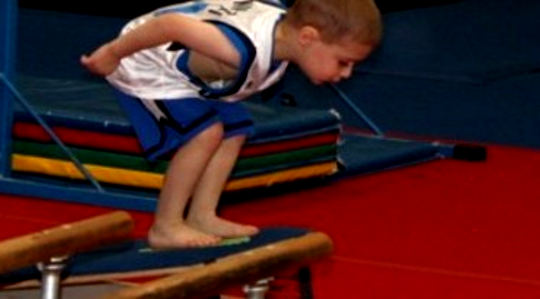
For most people, deciding what to do in life is a pretty tough decision, and one that requires more than a few moments' thought. Maybe that's why so many of us avoid thinking about it. Besides, when we simply react to life as it presents itself, we can make life itself responsible for what happens to us, rather than taking any responsibility ourselves. How many times have you heard the following statements?
"I'd be able to afford a nicer car if my boss would give me a raise."
"She got the promotion because she's always kissing up."
"It's not what you know, but who you know."
"They hired a snot-nosed kid right out of college to be my boss."
These seemingly good excuses often elicit a sympathetic response, but if you examine them closely you will find that they contain a common thread: everything is someone else's fault.
Blaming Keeps You In The Past
Before you can identify the need and desire to make a change, it's imperative that you get past the blaming stage. Blaming keeps you in the past.
No matter how much you believe in your excuses, you simply cannot deny that your success depends on the choices you make. You may have a tougher time than others because of barriers beyond your control (race, gender, age, and so on), but probably your toughest obstacle is the one you've created for yourself by failing to believe in your potential.
To overcome this obstacle, you've got to allow yourself the luxury of dreaming. If you've been struggling for some time, it might be tough to begin this process, but it's free and can be a lot of fun.
Asking Yourself the "I" Questions
Once you've decided you need to make a career change, ask yourself a few simple questions in order to reveal the what. We'll call these the "I" questions:
1. Am I happy in my current job?
- If so, how could I enhance my skills
to make it more enjoyable or profitable?
- If not, what is it I don't like -- hours, pay, people, tasks?
2. If I could walk into any job tomorrow (no questions asked), where would I choose to go? Why?
3. If I were financially independent, what would I do with my time?
4. If money were no object, what would I do to improve myself personally, academically, or socially?
5. What profession or activity did I secretly dream about as a child?
Sometimes, by asking these kinds of questions, we unlock hidden desires we didn't realize were there. Some people have never thought about these things because they've always discounted their ability to ever achieve them. Many were raised with strong opposition to dreaming:
"Don't get your hopes up and you won't be disappointed."
"No use thinking about something you can't have."
"There's no time to waste on foolish notions."
This so-called sensible philosophy can breed a stable no-nonsense approach to life, but it can also block valuable forethought and necessary planning for today's complicated and competitive environment.
Allow Yourself to Think Beyond the Present
 By allowing yourself to think beyond the present, you may discover that your current situation isn't as sensible and practical as you once thought.
By allowing yourself to think beyond the present, you may discover that your current situation isn't as sensible and practical as you once thought.
For example, Linda has been working as a factory supervisor for the past seven years. Linda is thankful for her job, but it's not something she ever dreamed she'd be doing at this stage in her life. When her husband divorced her unexpectedly two years ago, she was left with three children to feed and a house to pay for. She always thought of her job as a second income, extra money to help pay for things like a nicer car, a yearly vacation, and her daughter's orthodontics. When it became her sole income, however, her job no longer looked very appealing. Nevertheless, after seven years, Linda thought it made sense to continue on until her retirement was vested in three more years.
When Linda was asked about her desire to do something different with her life, her response was, "I don't know. It would be nice to not work these crazy hours . . . you know, to have more time to be a real mom. Things get so crazy around our house now that their father isn't around anymore. It doesn't feel like we're a family. I'm just maintaining a lifestyle." Therein lay Linda's why. Deep down she wanted more than the good pay she was receiving.
Upon further inspection, Linda discovered she felt no pride in her work. To her, it was work anybody could do. She knew she was intelligent and outgoing, and she could probably use her people skills in a job that would make her feel more fulfilled. It became apparent that Linda wanted more than a better work schedule; she wanted to feel pride not only in her career but in her ability to handle job and motherhood simultaneously, with satisfaction.
Your Idea of A Perfect Day
I once asked a friend, who was also contemplating a career change, to write down her idea of a perfect day. Here's what she wrote:
I wake up in the morning before my kids get out of bed. I make a cup of coffee and scan the newspaper. I greet each of my kids one by one as they make their sleepy-eyed way into the kitchen. We chat for a few minutes over a piece of toast or bowl of cereal. I go shower and pick out what I in going to wear for the day. I dress, put finishing touches on my hair and face, and the three of us are out the door to start our day. I'm not in a big hurry, but fully aware of the necessary routine while looking forward to the challenges.
After dropping the kids off at school, I make my way to work. I arrive early enough to stop and talk with a few of my co-workers and to grab another cup of coffee while it's fresh. Whatever job I'm doing, I know it well and feel confident about my ability to do it. My superiors and my peers respect me because of my knowledge and my commitment to hard work. I want to be there because it feels good to be appreciated -- it feels good to be paid for work I enjoy -- it feels good to be challenged, knowing I can handle whatever problems confront me.
At the end of the day, I'm tired, but not exhausted. I look forward to picking up my kids and hearing about their days. They help me with dinner; I help them with homework. We laugh and share stories before bed. I hear their prayers, then I say my own. I'm thankful for what I have. I'm not materially rich, but I'm spiritually and personally fulfilled. Life isn't perfect, but it's meaningful.
My friend's idea of a perfect day may be completely different from what you might want. Again, what's important is your ability to picture the kind of daily routine that would be comfortable for you and your family.
Choose the Ideal as Your Guide
Obviously, my friend's day sounds like something from a modern-day storybook. She doesn't mention the kids grumbling about helping with dinner or fighting with each other over the last bit of Frosted Flakes. But just because we know life is never perfect doesn't mean we shouldn't think about the ideal. Carl Shurz said, "Ideals are like stars: you will not succeed in touching them with your hands, but you choose them as your guides."
It's easy to dream, but it's much tougher to make all the pieces of the career puzzle fit. Many things have to be considered, such as your personality and temperament, your likes and dislikes, current job availability, compensation, geographic location, and required education or training. These must all be resolved one by one before you can realistically start on a road to learning new skills.
|
Step # 1
|
No Excuses: Getting Past the Fear of Failure
I've talked with hundreds of women over the years who seem to think they are incapable of learning and succeeding at anything new. Somewhere along the line, they've been told by parents, spouses, or friends that getting ahead was reserved for the lucky ones. I suspect the naysayers in their lives discouraged them for one of two reasons: (1) misery loves company, or (2) the realization that responsibility is a personal choice just might make them accountable for their own lives. Whatever the reason, it's hogwash (that's a midwestern term).
Most people are naturally opposed to learning new things because of fear of failure. "What if I don't do well and end up looking stupid?" "What if I'm not smart enough?" "What if my brain isn't large enough to hold another bit of information?" To answer these questions, I offer the following:
- Making an effort to do something more challenging is always going to be respected by the people in your life who really count. Ignore the others.
- No one is asking you to become a nuclear scientist or brain surgeon, unless, of course, you feel drawn to those professions, which is exactly the point. We usually feel attracted to areas and levels of skill that are within our comfort zones. Trust your instincts. Know the difference between lack of ability and lack of desire. If the desire is strong enough, chances are you have the intelligence to back it up.
- Folk wisdom says that we use about 10 percent of our brain's total capacity. It might sound like a good excuse, but you've got a long way to go before your mental hard drive crashes!
Succeeding in Life Is Within Your Reach
Everyone will have different reasons for making career changes, ranging from needing financial stability to desiring a greater sense of self-worth or life fulfillment. Timing will depend on a variety of individual circumstances and maturity levels.
There is absolutely no good reason to believe that learning new skills and succeeding in life is beyond your reach.
This article was excerpted with permission,
©1997, published by Fairview Press.
http://www.FairviewPress.org
Article Source
Solo Parenting: Raising Strong & Happy Families
by Diane Chambers.
 Solo Parenting explores financial, parental, and personal issues with a practical, positive approach.
Solo Parenting explores financial, parental, and personal issues with a practical, positive approach.
About The Author
Diane Chambers Dierks is a Marriage & Family Therapist who has authored the non-fiction work, Solo Parenting: Raising Strong & Happy Families, as well as numerous articles and publications regarding parenting and divorce. She is also the author of Already There, her first work of fiction.
Book by this Author
at

Thanks for visiting InnerSelf.com, where there are 20,000+ life-altering articles promoting "New Attitudes and New Possibilities." All articles are translated into 30+ languages. Subscribe to InnerSelf Magazine, published weekly, and Marie T Russell's Daily Inspiration. InnerSelf Magazine has been published since 1985.

Thanks for visiting InnerSelf.com, where there are 20,000+ life-altering articles promoting "New Attitudes and New Possibilities." All articles are translated into 30+ languages. Subscribe to InnerSelf Magazine, published weekly, and Marie T Russell's Daily Inspiration. InnerSelf Magazine has been published since 1985.
























